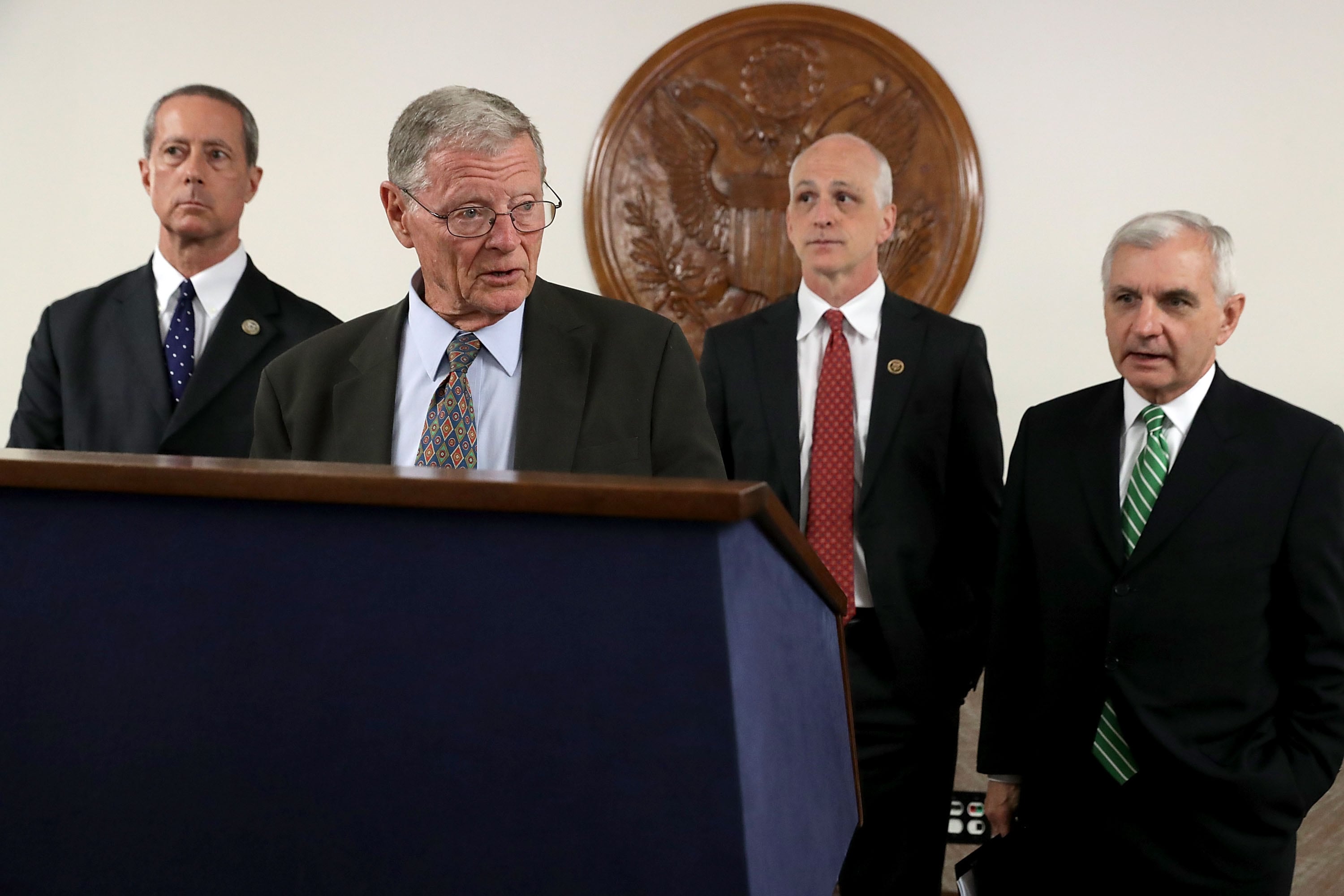WASHINGTON ― Over Republican objections, a Democratic-controlled House panel on Tuesday advanced legislation to halt deployment of a new low-yield nuclear warhead and bar any withdrawal from the Open Skies Treaty.
In a 10-8 party line vote, the House Armed Services Committee’s Strategic Forces Subcommittee recommended its portion of the 2020 National Defense Authorization Act, which contained the provisions, to the full committee.
The subcommittee’s inclusion sets up partisan fights over the size and cost of America’s nuclear arsenal ― both in the NDAA markup June 12 and in future talks to reconcile the bill with the GOP-led Senate’s version.
One provision would bar funding to deploy a low-yield warhead on a Trident missile, or W76-2, ordered by the Trump administration’s Nuclear Posture Review last year. Another would block the U.S. from withdrawing from the Open Skies Treaty, which lets its signatory nations fly over each other’s territory to verify military movements and conduct arms control measures, unless Russia is in material breach.
On Tuesday, HASC member Rep. Liz Cheney, who is also the House’s No. 3 Republican, offered an amendment that would have killed the language on the W76-2 and the Open Skies Treaty. It would have also deleted language in the bill meant to free the Department of Energy from a requirement to make 80 plutonium pits a year by the end of the next decade.
RELATED

That amendment was defeated along party lines, 8-10, after a tense partisan debate.
Cheney afterward stopped short of saying Republicans would reject the NDAA overall because of the contentious nuclear provisions.
“I think that you saw how strongly we feel on our side of the aisle about these particular issues, and it is going to be incumbent upon the Democrats to see if they can put their partisanship aside and do what’s right for the country,” Cheney, R-Wyo., told Defense News. “I think tearing the NDAA apart along partisan lines doesn’t serve anyone’s purposes, except for those who wish us ill as a nation.”
At the hearing, the panel’s chairman, Rep. Jim Cooper, D-Tenn., addressed Republican accusations that the mark was partisan, insisting that it was “strong on national security, the mark is patriotic, the mark should be relatively uncontroversial because we agree on 95 percent of these issues.”
Defense watchers were expecting this fight ever since Democrats won control of the House last year.
HASC Chairman Adam Smith, D-Wash., is expected to offer still more restrictive language on nuclear weapons in the days ahead, likely triggering more battles. Smith has said he wants Congress to pass an NDAA for a 59th consecutive year, but he will have to navigate partisan crosscurrents to draft a bill that can pass.
Addressing the McAleese/Credit Suisse symposium in March, the Strategic Forces Subcommittee’s top Republican, Rep. Mike Turner of Ohio, said his party will not support the NDAA if it contains prohibitions on the W76-2 or on developing technology for space-based missile defense ― or a “no first use” policy regarding nuclear weapons, which Smith previously supported.
“We’ve been very clear on the Republican side about issues that are red lines ... because they fundamentally weaken the security of the nation,” Cheney said after Tuesday’s hearing.
During the hearing, Republicans argued the W76-2 makes nuclear war less likely by giving the U.S. a more flexible deterrent to match Russia’s own low-yield arsenal. Cooper argued that it lessens America’s strategic power to replace unmodified Trident II weapons with low-yield weapons in the missile tubes of America’s ballistic missile submarines.
“Hopefully all of us should be focused on the risks faced by a submarine crew that might launch one of these tactical weapons, might waste a missile tube containing one of these weapons when submarines were supposed to be strategic and survivable elements of the [nuclear] triad,” Cooper said.
Cheney argued the Open Skies Treaty allows Russia to collect intelligence against the U.S., while Cooper countered that then-Defense Secretary Jim Mattis supported the treaty and that it enabled the U.S. to surveil the Black Sea after Russia’s attack on Ukrainian naval vessels there last year.
On pit production, Cheney said the country needs greater capacity to sustain its nuclear stockpiles, while Cooper called the expansion to a proposed facility in South Carolina expensive, “pork-barrel spending” and pointed to the existing pit plant at the Los Alamos National Laboratory in New Mexico.
Cheney’s defeated amendment would have also killed the bill’s proposed transparency requirements for the Nuclear Weapons Council, a joint Defense Department and Energy Department group that oversees plans for nuclear weapons programs.
Joe Gould was the senior Pentagon reporter for Defense News, covering the intersection of national security policy, politics and the defense industry. He had previously served as Congress reporter.




